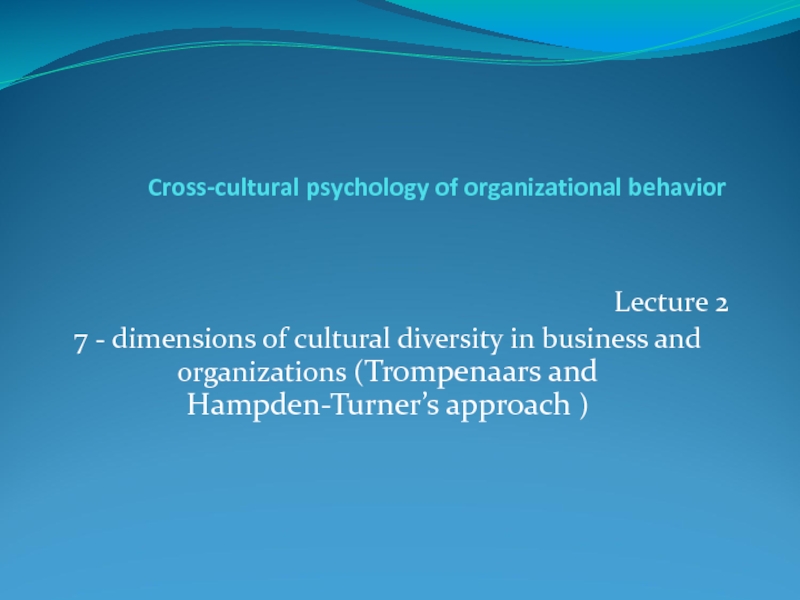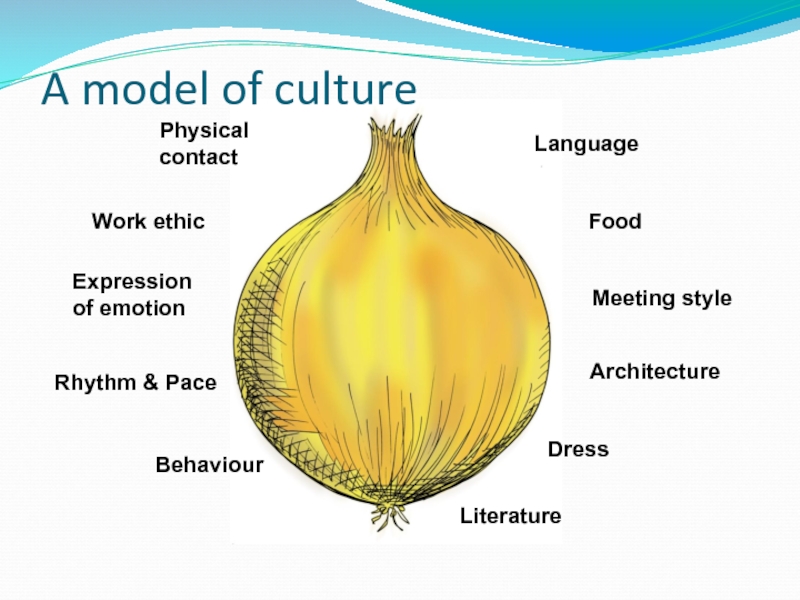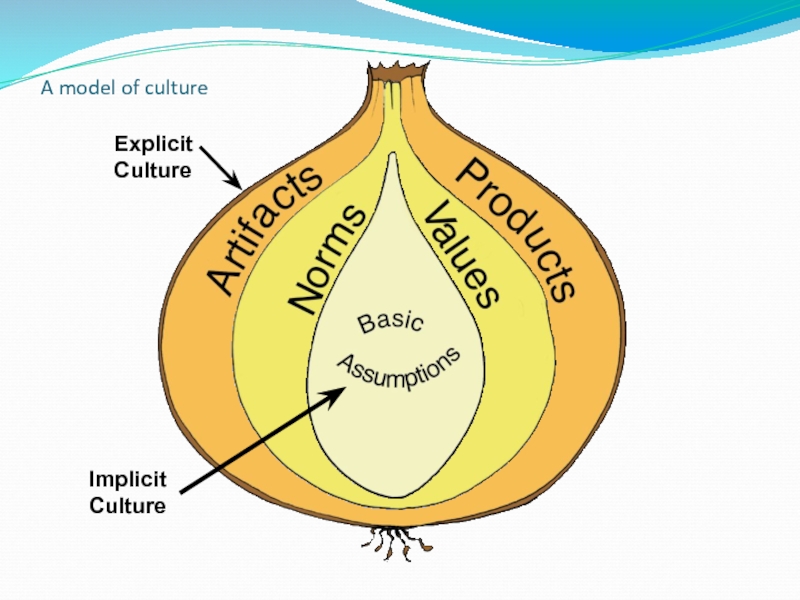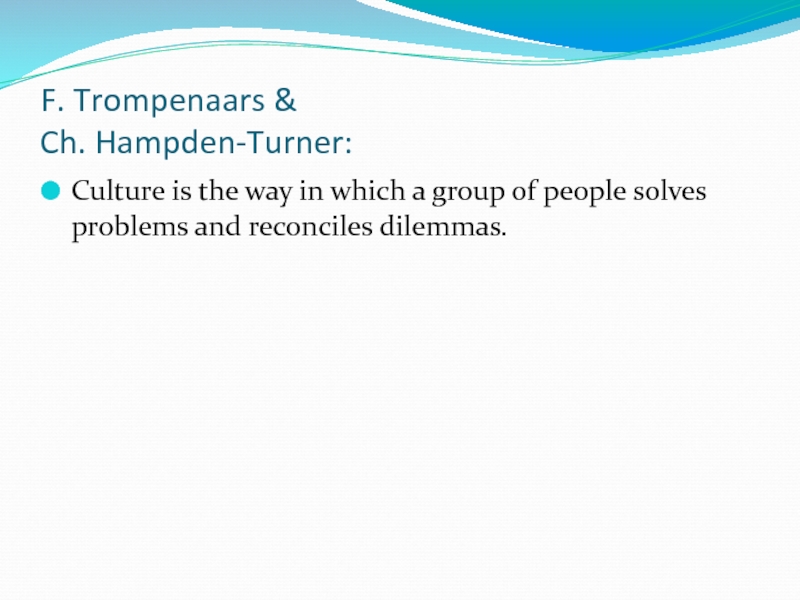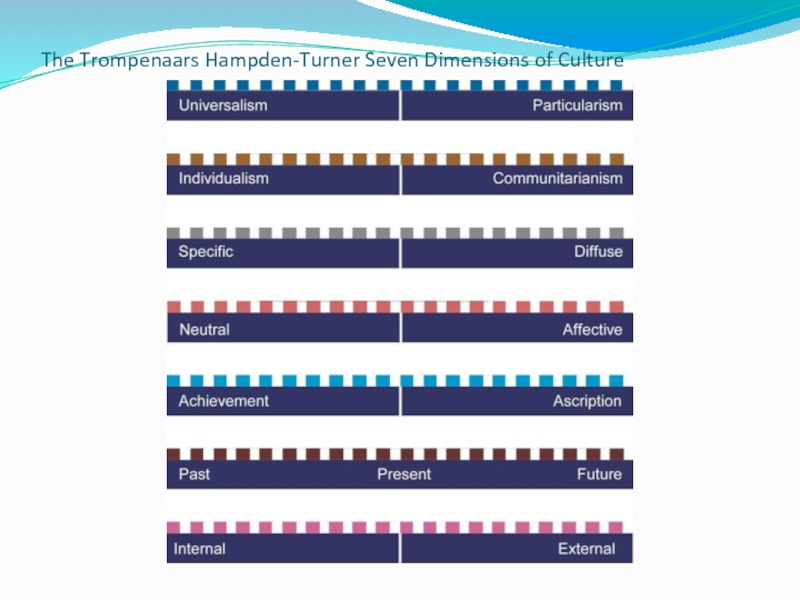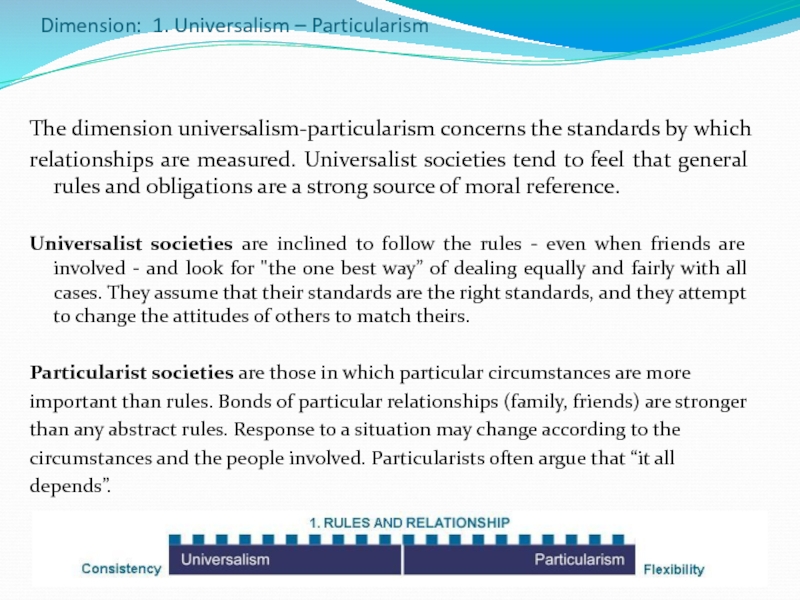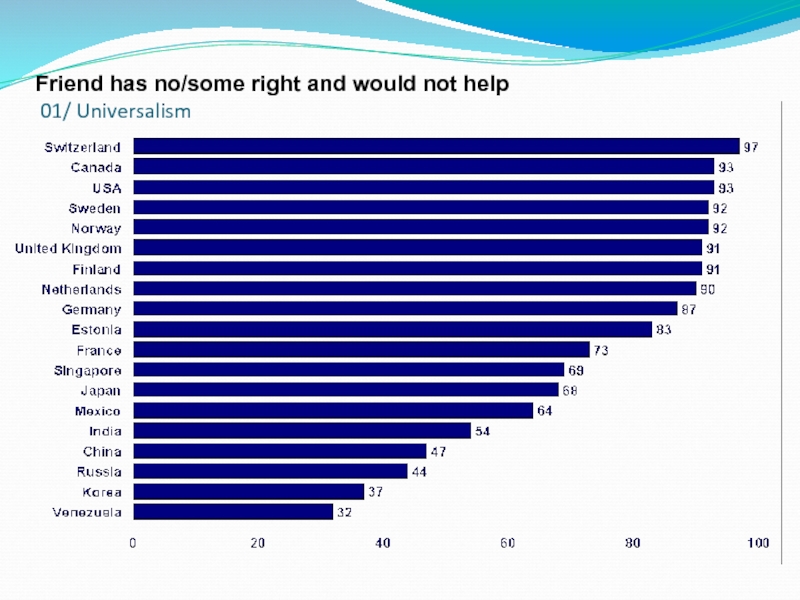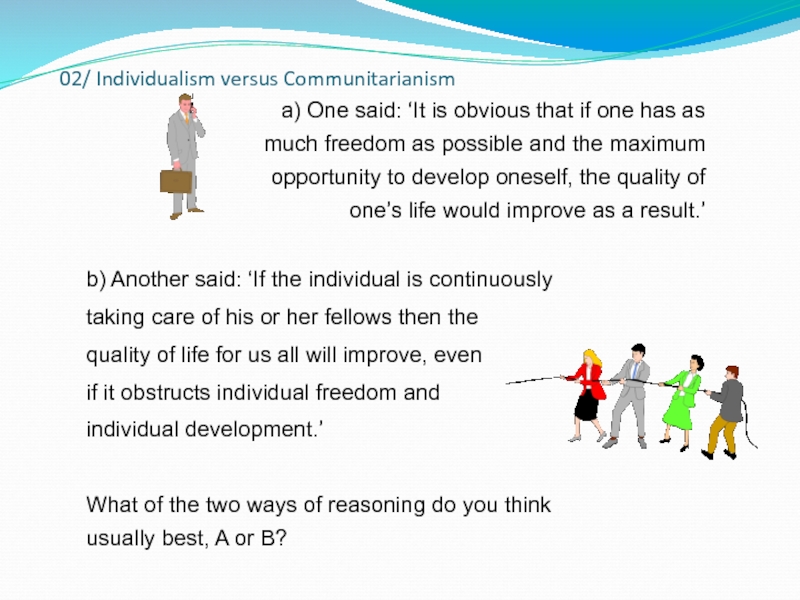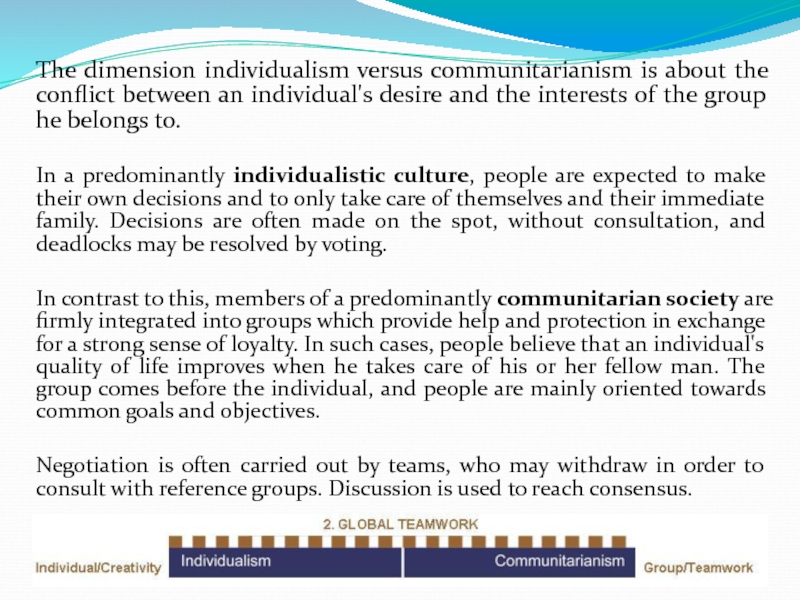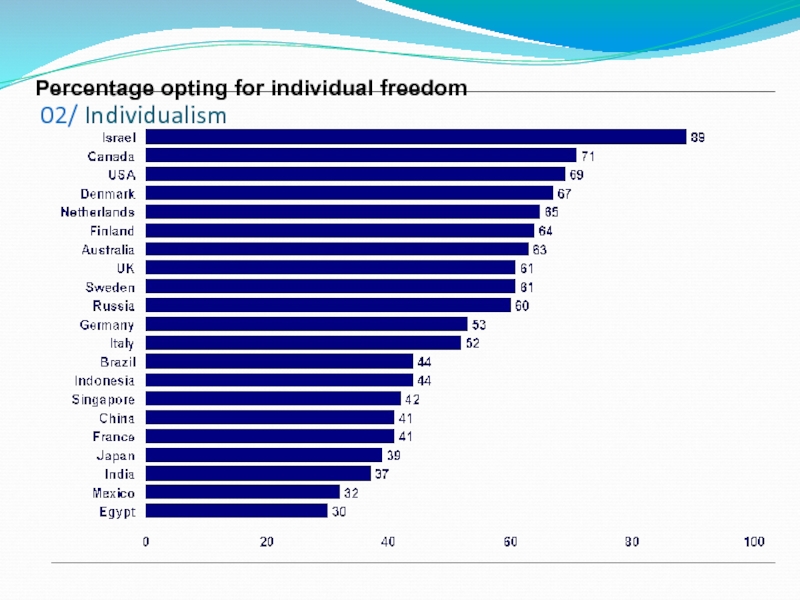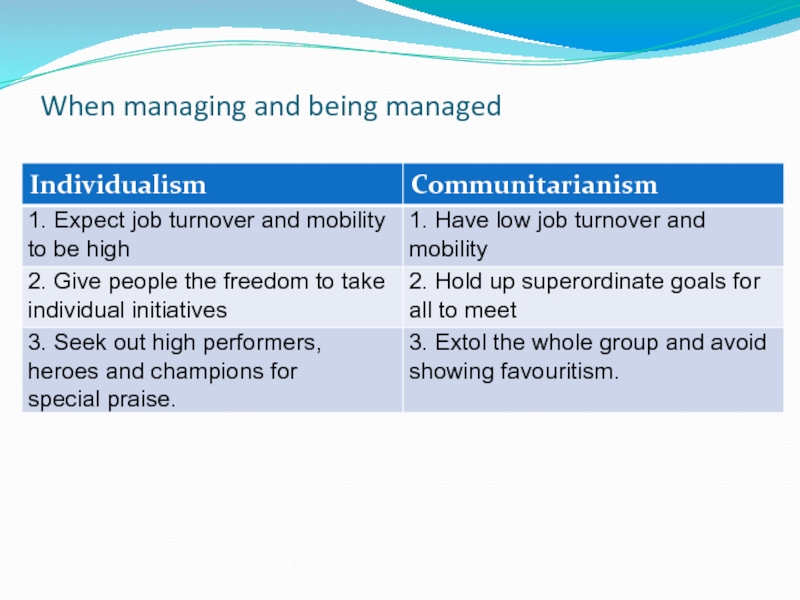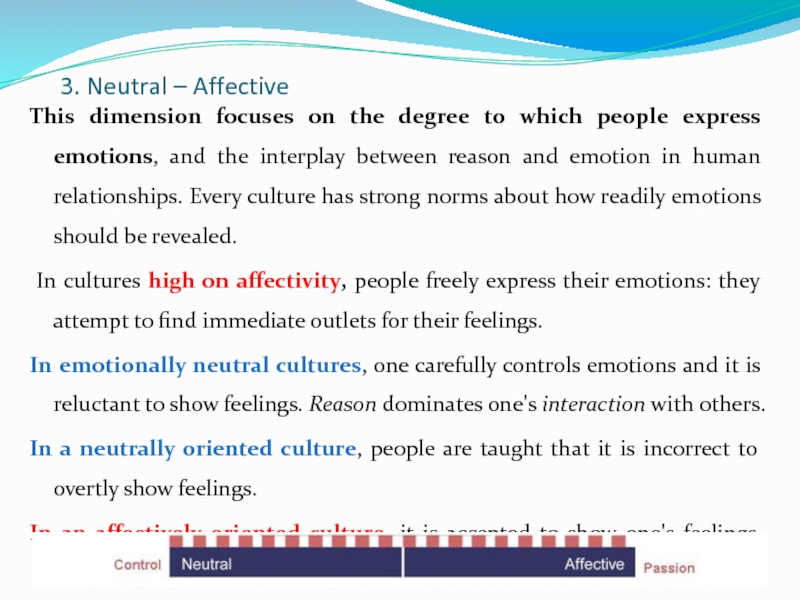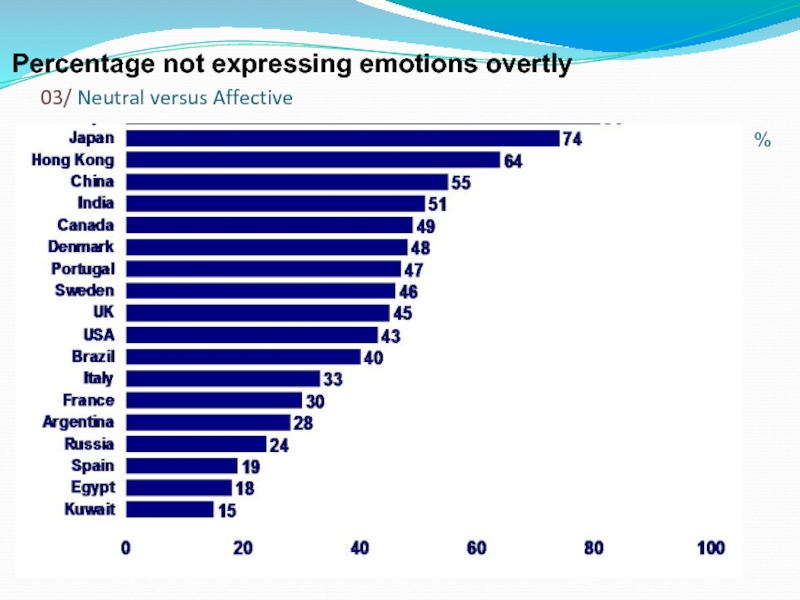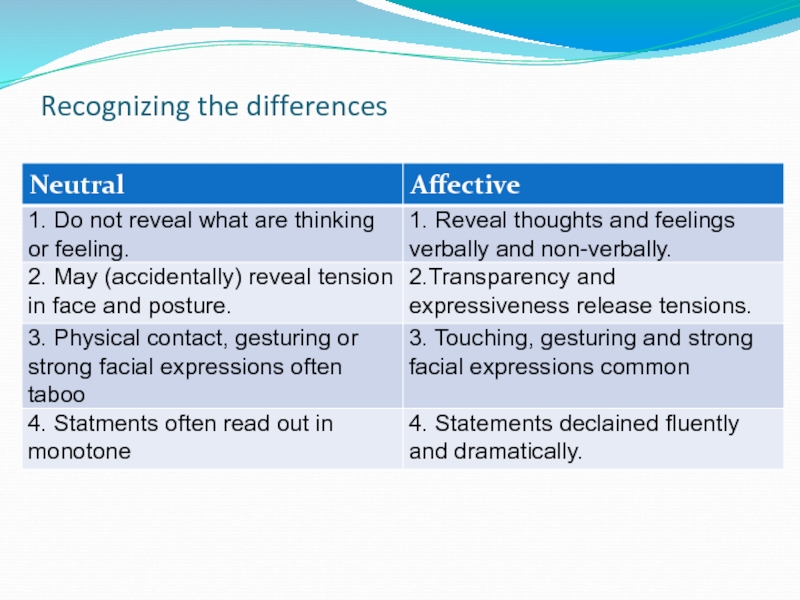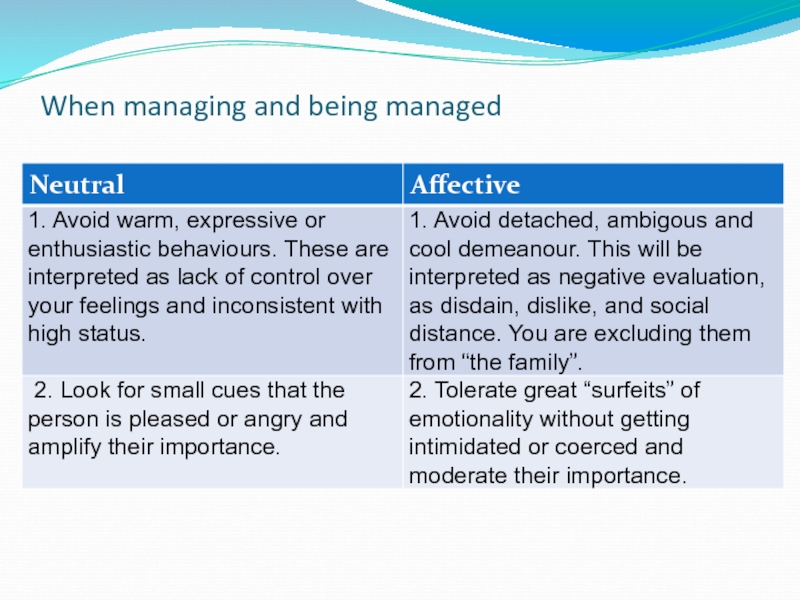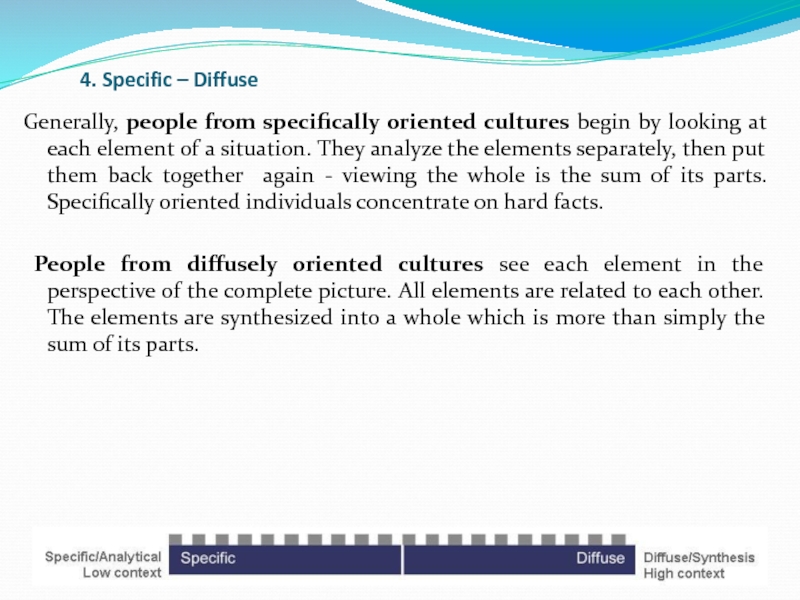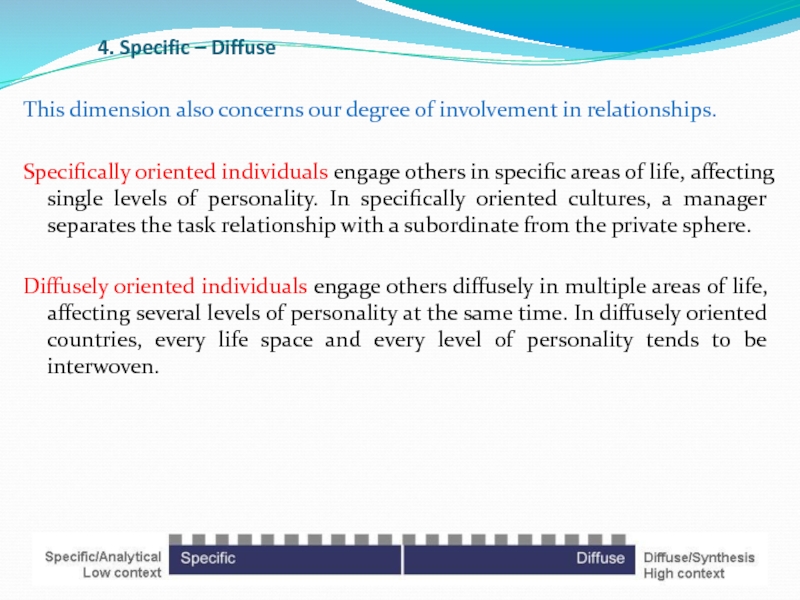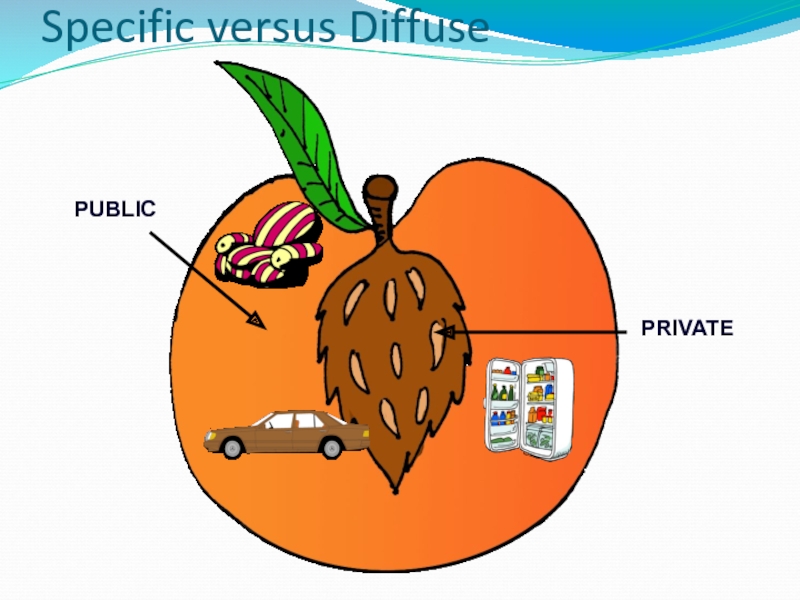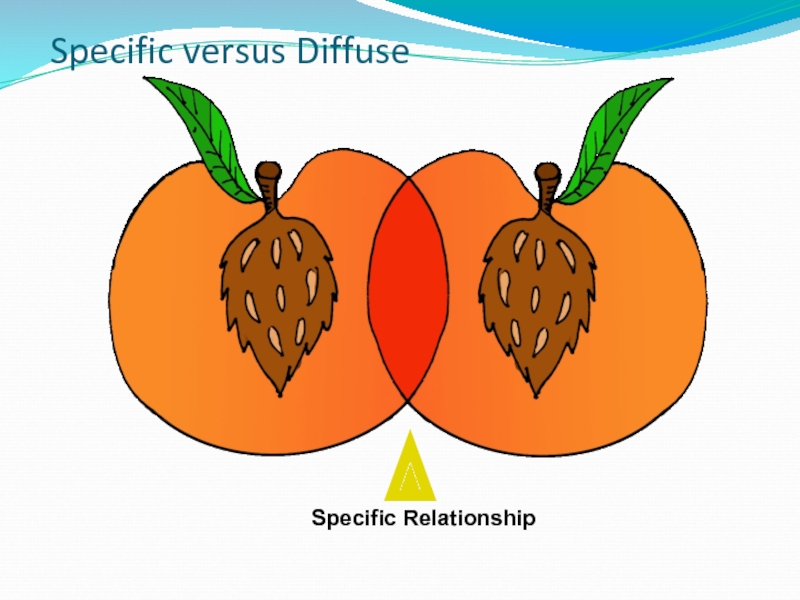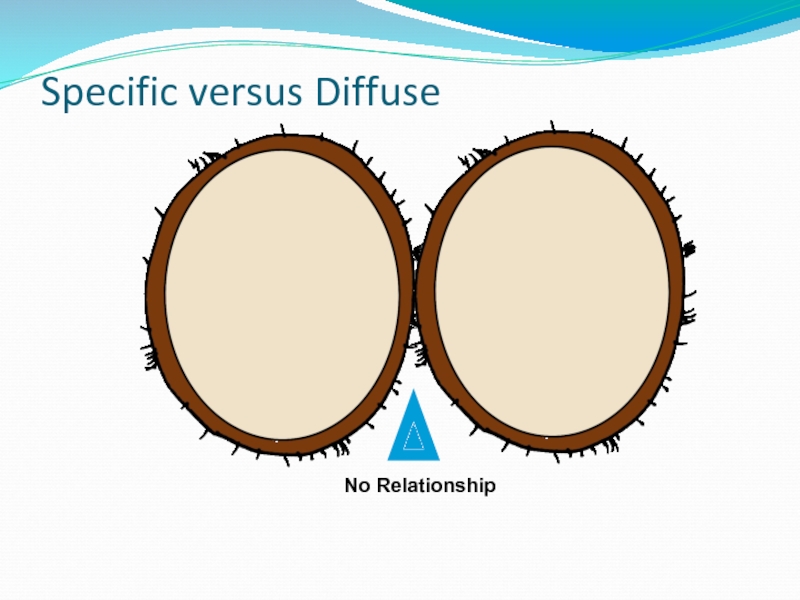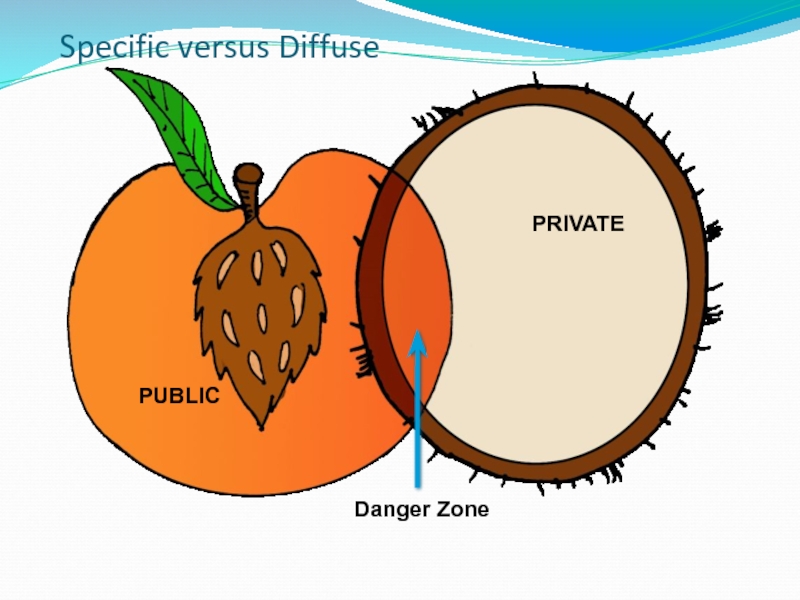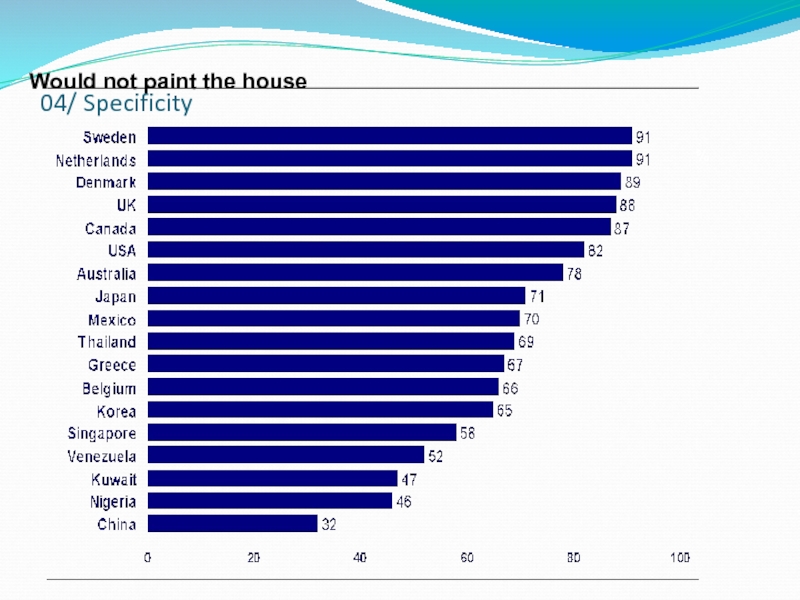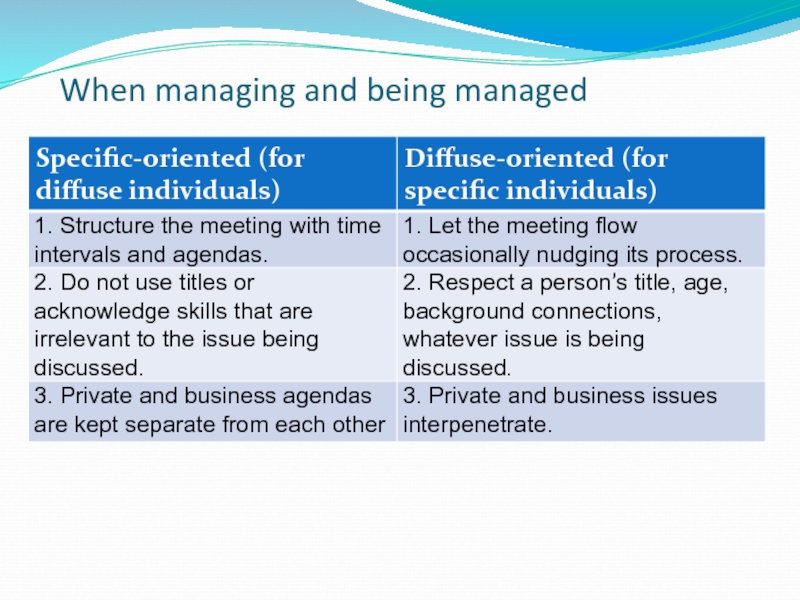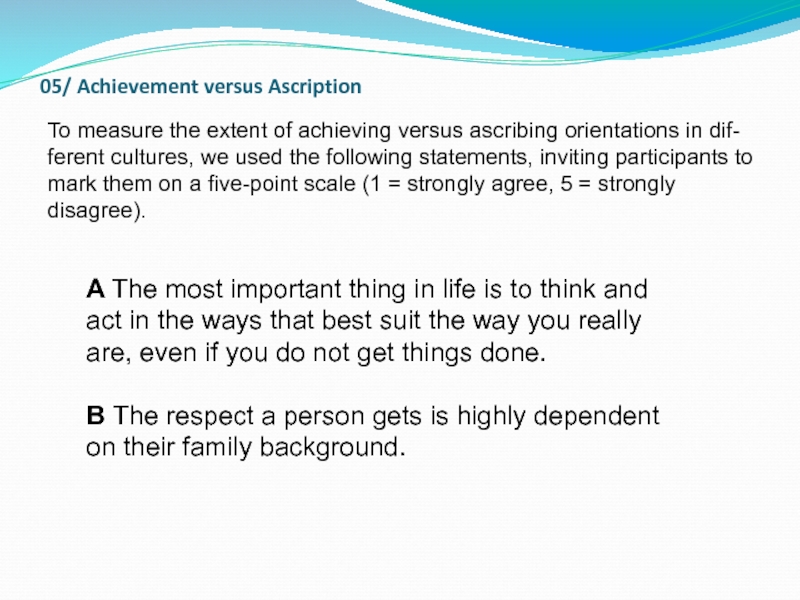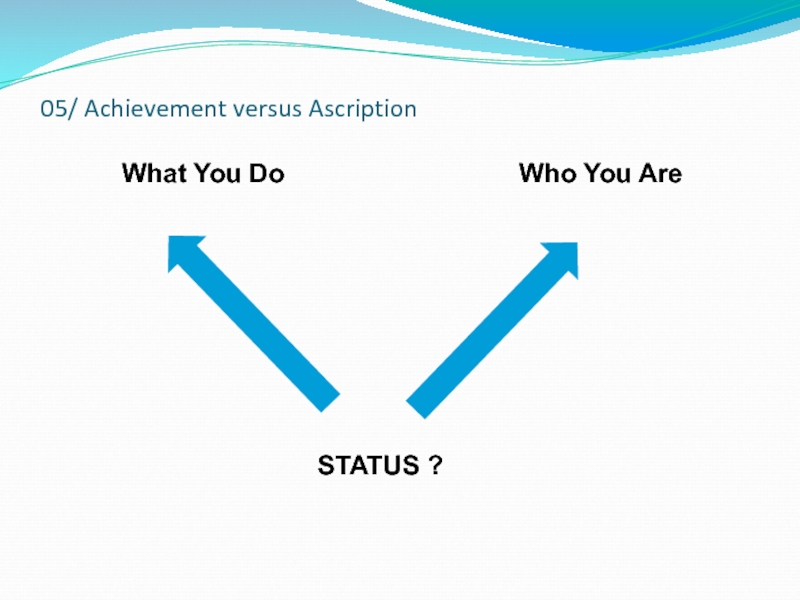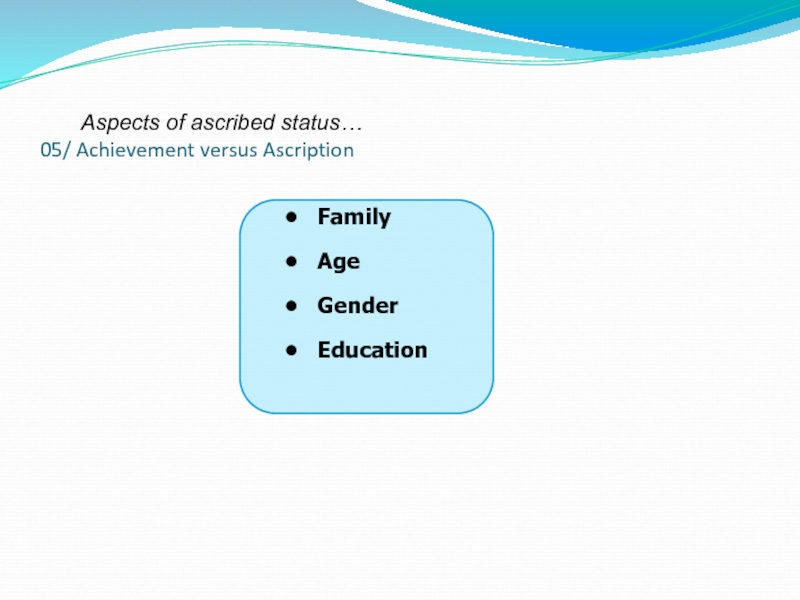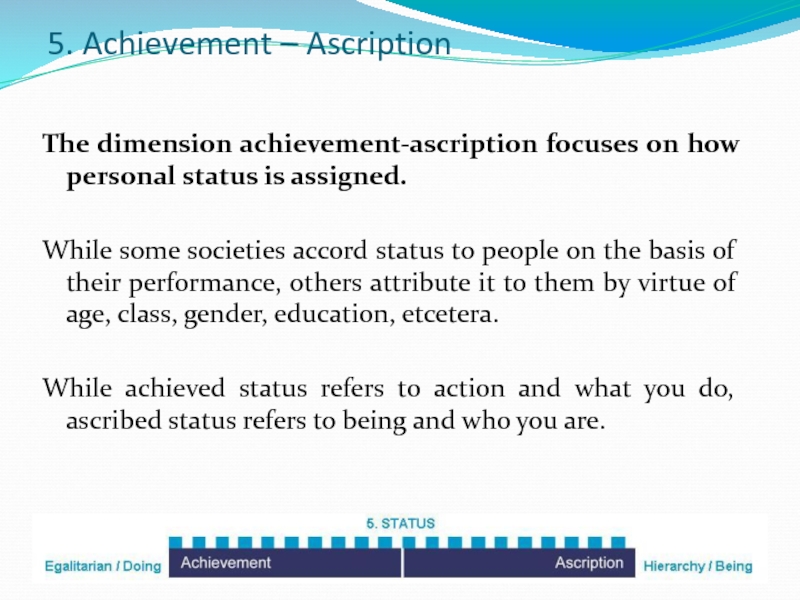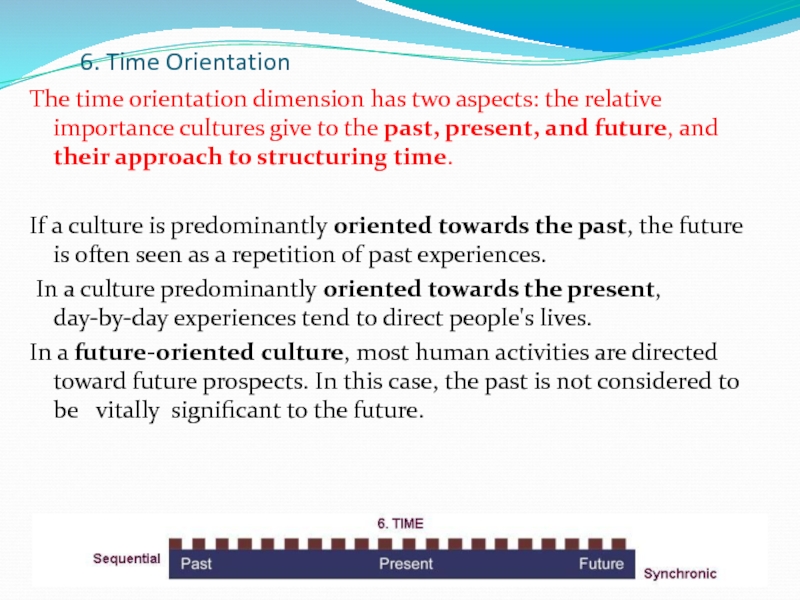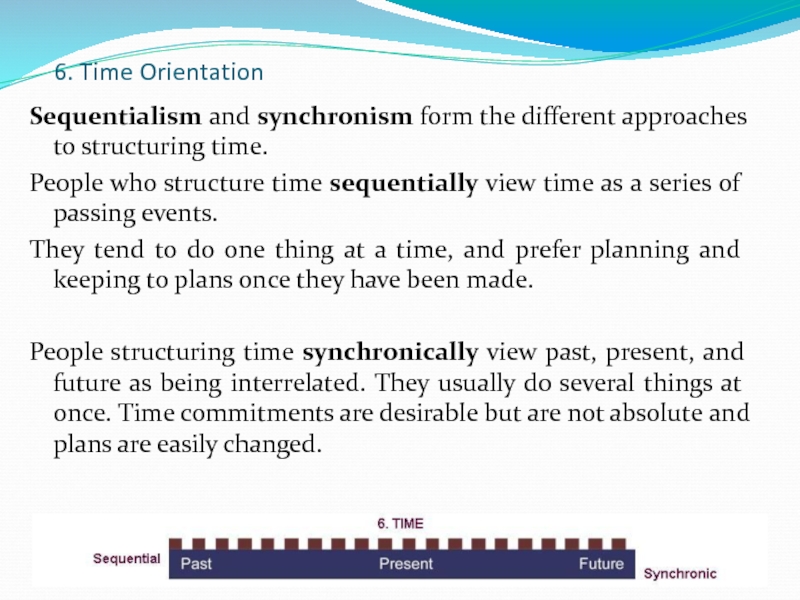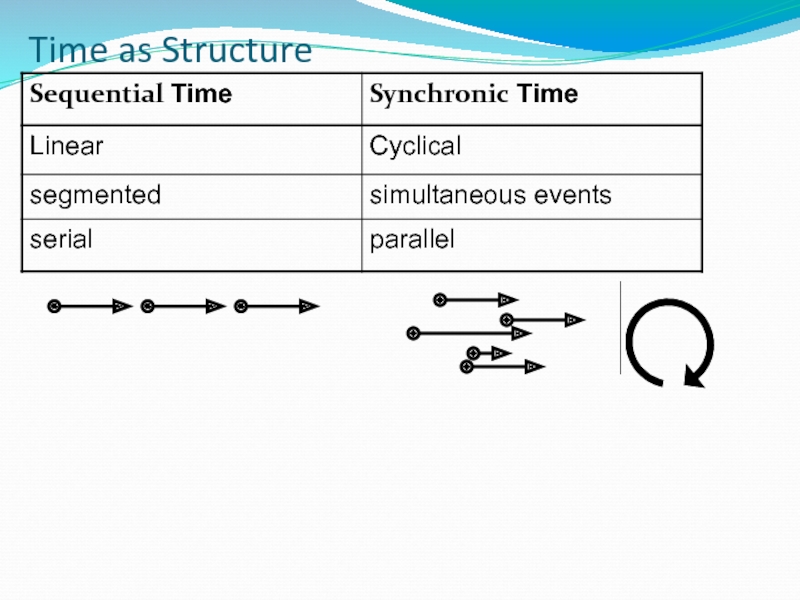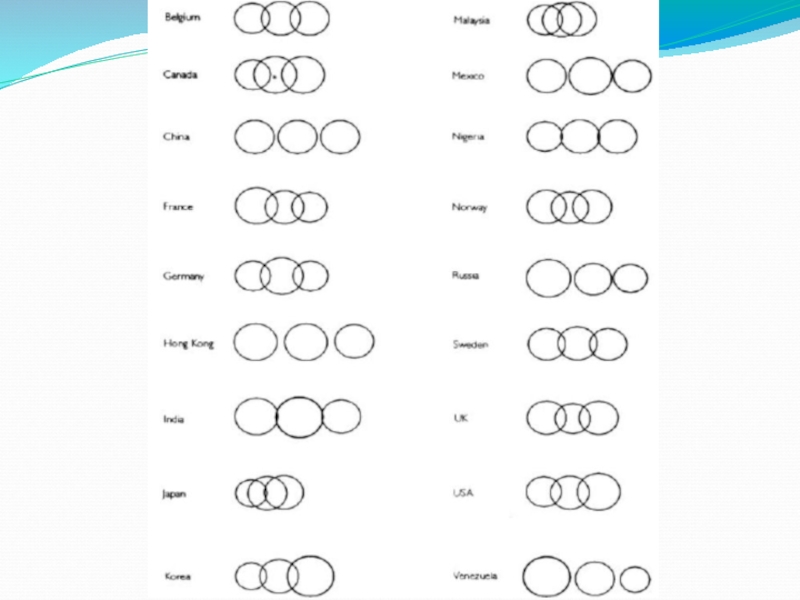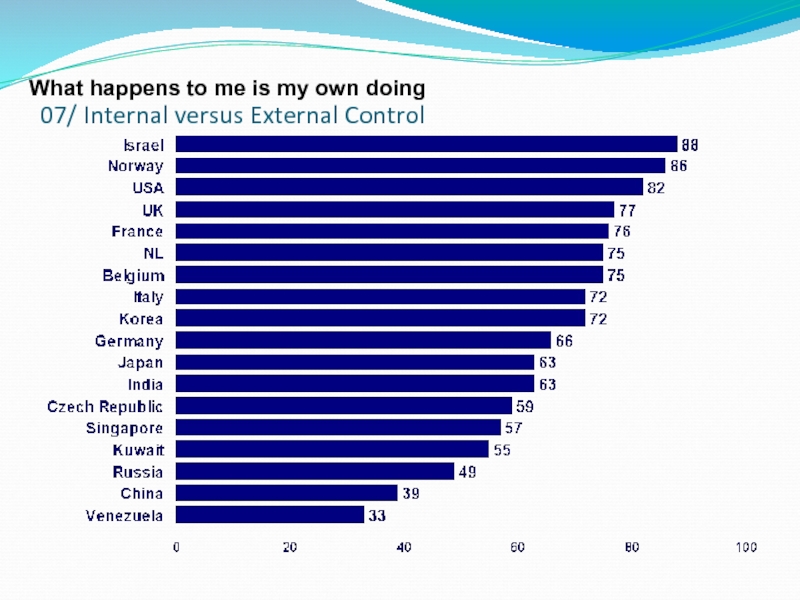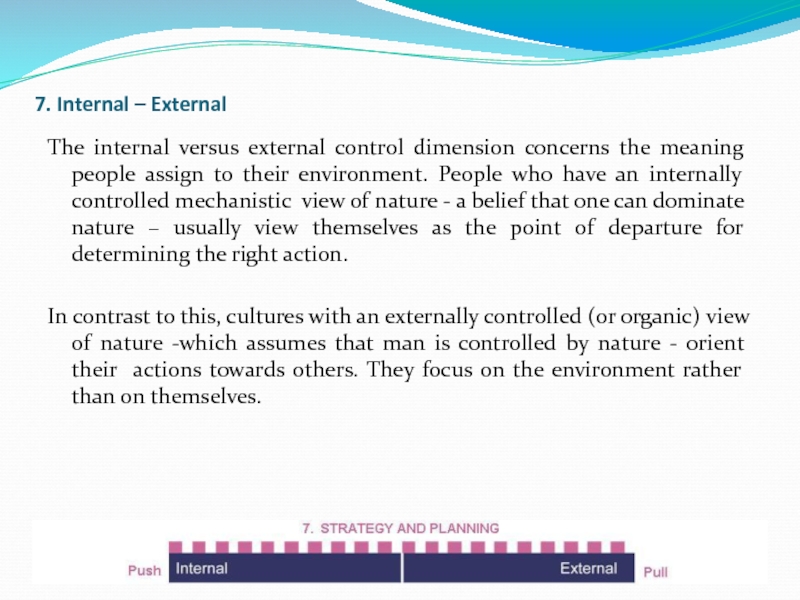- Главная
- Разное
- Дизайн
- Бизнес и предпринимательство
- Аналитика
- Образование
- Развлечения
- Красота и здоровье
- Финансы
- Государство
- Путешествия
- Спорт
- Недвижимость
- Армия
- Графика
- Культурология
- Еда и кулинария
- Лингвистика
- Английский язык
- Астрономия
- Алгебра
- Биология
- География
- Детские презентации
- Информатика
- История
- Литература
- Маркетинг
- Математика
- Медицина
- Менеджмент
- Музыка
- МХК
- Немецкий язык
- ОБЖ
- Обществознание
- Окружающий мир
- Педагогика
- Русский язык
- Технология
- Физика
- Философия
- Химия
- Шаблоны, картинки для презентаций
- Экология
- Экономика
- Юриспруденция
Cross-cultural psychology of organizational behavior презентация
Содержание
- 1. Cross-cultural psychology of organizational behavior
- 2. Fons Trompenaars is a Dutch organizational theorist,
- 3. Language Food Meeting style Architecture Dress Behaviour
- 4. Explicit Culture A model of culture Implicit Culture
- 5. F. Trompenaars & Ch. Hampden-Turner:
- 6. The Trompenaars Hampden-Turner Seven Dimensions of Culture
- 7. 01/ The Car Accident You are riding
- 8. 01/ What right does your friend have?
- 9. Dimension: 1. Universalism – Particularism The
- 10. Friend has no/some right and would not help 01/ Universalism
- 12. 02/ Individualism versus Communitarianism
- 13. 2. Individualism – Communitarianism The dimension
- 14. Percentage opting for individual freedom 02/ Individualism
- 15. When managing and being managed
- 16. 03/ Neutral versus Affective In my society,
- 17. 3. Neutral – Affective This dimension focuses
- 18. % Percentage not expressing emotions overtly 03/ Neutral versus Affective
- 19. Recognizing the differences
- 20. When managing and being managed
- 21. 4. Specific – Diffuse Generally, people from
- 22. 04/ Specificity а) The colleague argues: You
- 23. 4. Specific – Diffuse This dimension also
- 24. 04/ Specific versus Diffuse
- 25. PUBLIC PRIVATE Specific versus Diffuse
- 26. Specific versus Diffuse
- 27. PUBLIC PRIVATE Specific versus Diffuse
- 28. Specific versus Diffuse
- 29. PRIVATE PRIVATE Specific versus Diffuse
- 30. Specific versus Diffuse PRIVATE PUBLIC
- 31. % Would not paint the house 04/ Specificity
- 32. When managing and being managed
- 33. A The most important thing in life
- 34. «Respect depends on family background» (Percentage of respondents who disagree)
- 35. «Acting as suits you even if nothing is achieved» Percentage of respondents who disagree
- 36. 05/ Achievement versus Ascription STATUS ?
- 37. 05/ Achievement versus Ascription Aspects of ascribed status…
- 38. 5. Achievement – Ascription The dimension
- 39. When managing and being managed
- 40. 6. Time Orientation The time orientation dimension
- 41. 6. Time Orientation Sequentialism and synchronism
- 42. Time as Structure
- 44. 07/ Internal versus External Control A It
- 45. 07/ Internal versus External Control A. What
- 46. What happens to me is my own doing 07/ Internal versus External Control
- 47. 7. Internal – External The internal versus
- 48. When managing and being managed
Слайд 1Cross-cultural psychology of organizational behavior
Lecture 2
7 - dimensions of cultural
Слайд 2Fons Trompenaars is a Dutch organizational theorist, management consultant, and author
Fons Trompenaars
Charles Hampden-Turner
Charles Hampden-Turner is a British management philosopher, and Senior Research Associate at the Judge Business School at the University of Cambridge since 1990. He is the creator of Dilemma Theory, and co-founder and Director of Research and Development at the Trompenaars-Hampden-Turner Group, in Amsterdam.
Слайд 3Language
Food
Meeting style
Architecture
Dress
Behaviour
Rhythm & Pace
Expression of emotion
Work ethic
Physical contact
Literature
A model of
Слайд 5F. Trompenaars &
Ch. Hampden-Turner:
Culture is the way in which
Слайд 701/ The Car Accident
You are riding in a car driven by
What right has your friend to expect you to protect him?
Слайд 801/ What right does your friend have?
My friend has a definite
He has some right as a friend to expect me to testify to the lower speed.
C. He has no right as a friend to expect me to testify to the lower speed.
Слайд 9Dimension: 1. Universalism – Particularism
The dimension universalism-particularism concerns the standards by
relationships are measured. Universalist societies tend to feel that general rules and obligations are a strong source of moral reference.
Universalist societies are inclined to follow the rules - even when friends are involved - and look for "the one best way” of dealing equally and fairly with all cases. They assume that their standards are the right standards, and they attempt to change the attitudes of others to match theirs.
Particularist societies are those in which particular circumstances are more
important than rules. Bonds of particular relationships (family, friends) are stronger
than any abstract rules. Response to a situation may change according to the
circumstances and the people involved. Particularists often argue that “it all
depends”.
Слайд 132. Individualism – Communitarianism
The dimension individualism versus communitarianism is about the
In a predominantly individualistic culture, people are expected to make their own decisions and to only take care of themselves and their immediate family. Decisions are often made on the spot, without consultation, and deadlocks may be resolved by voting.
In contrast to this, members of a predominantly communitarian society are firmly integrated into groups which provide help and protection in exchange for a strong sense of loyalty. In such cases, people believe that an individual's quality of life improves when he takes care of his or her fellow man. The group comes before the individual, and people are mainly oriented towards common goals and objectives.
Negotiation is often carried out by teams, who may withdraw in order to consult with reference groups. Discussion is used to reach consensus.
Слайд 1603/ Neutral versus Affective
In my society, it is considered unprofessional to
Please select your position on the statement below:
A. Strongly agree
B. Agree
C. Undecided
D. Disagree
E. Strongly disagree
3. Neutral – Affective
Слайд 173. Neutral – Affective
This dimension focuses on the degree to which
In cultures high on affectivity, people freely express their emotions: they attempt to find immediate outlets for their feelings.
In emotionally neutral cultures, one carefully controls emotions and it is reluctant to show feelings. Reason dominates one's interaction with others.
In a neutrally oriented culture, people are taught that it is incorrect to overtly show feelings.
In an affectively oriented culture, it is accepted to show one's feelings spontaneously.
Слайд 214. Specific – Diffuse
Generally, people from specifically oriented cultures begin by
People from diffusely oriented cultures see each element in the perspective of the complete picture. All elements are related to each other. The elements are synthesized into a whole which is more than simply the sum of its parts.
Слайд 2204/ Specificity
а) The colleague argues:
You don’t have to paint the house
b) The subordinate argues:
Despite the fact that I don’t feel like it, I will paint the house anyway. He is my boss and you cannot ignore it outside your work either.
A boss asking to paint his house
Слайд 234. Specific – Diffuse
This dimension also concerns our degree of involvement
Specifically oriented individuals engage others in specific areas of life, affecting single levels of personality. In specifically oriented cultures, a manager separates the task relationship with a subordinate from the private sphere.
Diffusely oriented individuals engage others diffusely in multiple areas of life, affecting several levels of personality at the same time. In diffusely oriented countries, every life space and every level of personality tends to be interwoven.
Слайд 33A The most important thing in life is to think and
B The respect a person gets is highly dependent on their family background.
05/ Achievement versus Ascription
To measure the extent of achieving versus ascribing orientations in dif-
ferent cultures, we used the following statements, inviting participants to
mark them on a five-point scale (1 = strongly agree, 5 = strongly
disagree).
Слайд 385. Achievement – Ascription
The dimension achievement-ascription focuses on how personal status
While some societies accord status to people on the basis of their performance, others attribute it to them by virtue of age, class, gender, education, etcetera.
While achieved status refers to action and what you do, ascribed status refers to being and who you are.
Слайд 406. Time Orientation
The time orientation dimension has two aspects: the relative
If a culture is predominantly oriented towards the past, the future is often seen as a repetition of past experiences.
In a culture predominantly oriented towards the present, day-by-day experiences tend to direct people's lives.
In a future-oriented culture, most human activities are directed toward future prospects. In this case, the past is not considered to be vitally significant to the future.
Слайд 416. Time Orientation
Sequentialism and synchronism form the different approaches to structuring
People who structure time sequentially view time as a series of passing events.
They tend to do one thing at a time, and prefer planning and keeping to plans once they have been made.
People structuring time synchronically view past, present, and future as being interrelated. They usually do several things at once. Time commitments are desirable but are not absolute and plans are easily changed.
Слайд 4407/ Internal versus External Control
A It is worthwhile trying to control
B Nature should take its course and we just have to accept it the way it comes and do the best we can
Слайд 4507/ Internal versus External Control
A. What happens to me is my
B. Sometimes I feel that I do not have enough control over the direction my life is taking.
Слайд 477. Internal – External
The internal versus external control dimension concerns the
In contrast to this, cultures with an externally controlled (or organic) view of nature -which assumes that man is controlled by nature - orient their actions towards others. They focus on the environment rather than on themselves.
